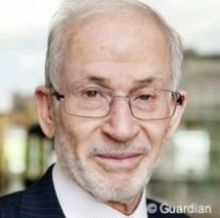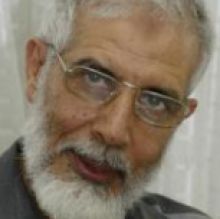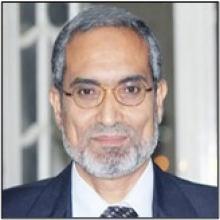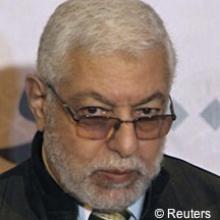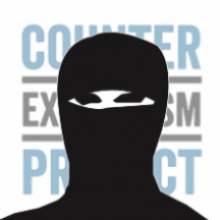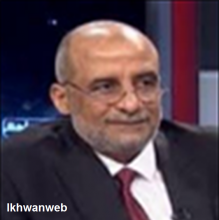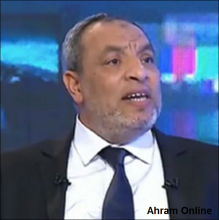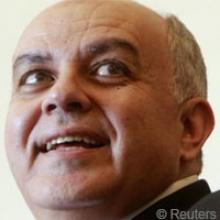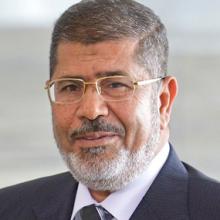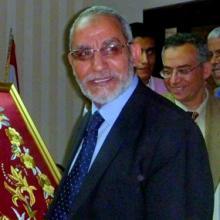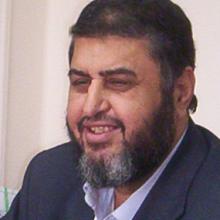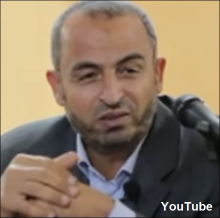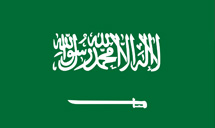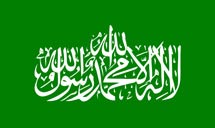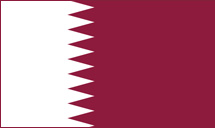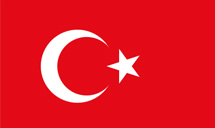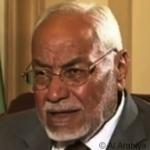Executive Summary
The Muslim Brotherhood is a transnational Sunni Islamist movement that seeks to implement sharia (Islamic law) under a global caliphate. Founded in Egypt in 1928, the Brotherhood is that country’s oldest Islamist organization and has branches throughout the world. While these branches operate under a variety of names and use a variety of social, political, and occasionally violent methods, they share a commitment to the overarching goal of establishing rule according to sharia. The most notable and lethal Brotherhood offshoot is Hamas, the Palestinian terror group operating out of the Gaza Strip. Some analysts also argue that the Brotherhood has served as the ideological forerunner of modern violent Islamist groups such as al-Qaeda and ISIS. The group has been labeled a terrorist organization by the governments of Bahrain, Egypt, Russia, Saudi Arabia, Syria, and the United Arab Emirates.
Founded in 1928 by schoolteacher Hassan al-Banna in Ismailia, Egypt, the Brotherhood began as a pan-Islamist religious and social movement, building popular support through dawa (proselytization), political activism, and social welfare. Alongside its political and social activities, the Brotherhood operated an underground violent group—the “secret apparatus”—dedicated to the eradication of British rule in Egypt and of the Jewish presence in Palestine.
The Egyptian Brotherhood’s growth spurred the formation of affiliates in nearby countries such as Syria and Jordan. Dissemination of written works by Sayyid Qutb, one of the leading Brotherhood ideologues in the 1950s and 1960s, prompted further Brotherhood growth across the Arabian Peninsula, Palestinian territories, and Africa. As Zachary Laub of the Council on Foreign Relations writes, Qutb’s writings “provided the intellectual and theological underpinnings for many militant Sunni Islamist groups, including al-Qaeda and Hamas.” Indeed, Qutb’s writings helped inform the Islamist ideology known as Qutbism, which advocates violent jihad—and the killing of secular Muslims—in order to implement sharia.
The Brotherhood has survived in Egypt despite several waves of repression by the Egyptian government. Repressive measures have included legal prohibition of the group and imprisonment and execution of large numbers of Brotherhood members, including Qutb, whom the Egyptian government executed in 1966 for his part in the conspiracy to assassinate then-President Gamal Abdel Nasser. The Egyptian Brotherhood also benefitted from intermittent periods of toleration by the government, during which the group continued its social, religious, economic, and political activities, building up organizational strength unmatched by any other Egyptian opposition group. In addition, the group’s unofficial ideologue, the now-deceased Egyptian cleric Yusuf al-Qaradawi, was unrestrained in delivering sermons and issuing militant fatwas (religious decrees) from his pulpit in Qatar.
As the Arab Spring came to a head in 2011, the Brotherhood’s resilience and robust infrastructure left it well placed to capitalize on shifting political landscapes in Egypt and elsewhere in the Middle East and North Africa. Several Brotherhood chapters formed political parties and performed well in their respective countries’ elections, particularly in Egypt with the Freedom and Justice Party, which ran senior Brotherhood official Mohammed Morsi as its candidate for president. In Tunisia, Ennahdha won the first elections after former President Zine El Abidine Ben Ali’s ouster.
Morsi served as president of Egypt between June 2012 and July 2013, though his government alienated much of the population due to perceptions that it governed poorly and overreached—including through the group’s attempts to rush through changes to the Egyptian constitution. In July 2013, after months of mass protests against the Brotherhood-led government, the Egyptian military overthrew Morsi and seized power, calling for new presidential and parliamentary elections and arresting Morsi and hundreds of Brotherhood officials and members on various charges. Egypt’s military-run government, led by President Abdel Fattah el-Sisi, has sought to uproot the Brotherhood entirely.
After Morsi’s ouster, an ideological and strategic rift widened between the Egyptian Brotherhood’s older and younger generations. While the older generation—known as the “old guard”—reiterates its platform of non-violence and hopes that the military regime will collapse due to economic decline or an internal coup, for example, the younger generation has adopted increasingly jihadist rhetoric and resorts to low-level violence in pursuit of the overthrow of the Sisi regime. In August 2020, Egyptian authorities arrested the Brotherhood’s acting supreme guide, Mahmoud Ezzat. Ezzat had been the group’s acting supreme guide since the 2013 arrest of Supreme Guide Mohammed Badie. Following Ezzat’s arrest, the Brotherhood named Ibrahim Mounir its news acting supreme guide and reorganized its leadership structure. Following Mounir’s death on November 4, 2022, the Brotherhood’s Shura Council named Mahmoud Hussein as its acting supreme guide on November 16, 2022.
The U.S. government has examined a possible designation of the Brotherhood since President Donald Trump suggested it in early 2017. In a private meeting on April 9, 2019, Egyptian President Abdel Fattah el-Sisi reportedly urged Trump to join Egypt in branding the movement as a terrorist organization. Following Sisi’s visit, the White House directed national security and diplomatic officials to investigate potential sanctions against the group. However, critics of the designation claim that the Brotherhood does not meet the legal criteria for the designation and that such a designation could complicate relations with countries where Brotherhood-linked groups have a role in politics and government. The Muslim Brotherhood remains undesignated as a terrorist organization in the United States.
Doctrine:
The Muslim Brotherhood was founded in 1928 to revive the caliphate, following the abolition of the Ottoman Empire by the Turkish Republic four years earlier. Brotherhood founder Hassan al-Banna rejected the phenomenon of Western-style nationalism and espoused an ideology of “pan-Islamic nationalism” in the hopes of bringing back the caliphate.
“Islam does not recognize geographical boundaries, nor does it acknowledge racial and blood differences, considering all Muslims as one Umma (global community of Muslims). The Muslim Brethren (Muslim Brotherhood)…. believe that the caliphate is a symbol of Islamic Union and an indication of the bonds between the nations of Islam. They see the caliphate and its re-establishment as a top priority...” –Hassan al-Banna
Banna was concerned with what he considered the greatest threat to Islam: the rise of secularism and Western culture in Muslim societies. To counter this danger, Banna began dawa (proselytization) in schools, mosques, and coffee houses, spreading his pan-Islamist ideology and emphasizing the need to return to sharia.
Banna also subscribed to an Islamic version of irredentism—believing that lands once ruled under Muslim law cannot be transferred to non-Muslim rule and should be returned to Muslim rule. This belief has informed the Brotherhood’s positions on Europe and countries that were previously governed under Islamic rule. This belief forms the basis for the Brotherhood’s attitudes toward Israel, which the Brotherhood believes is built on the Islamic land of Palestine at the core of what used to be the Islamic empire. Brotherhood thinkers such as Yusuf al-Qaradawi have reinforced an Islamic requirement to recapture such lands and return them to Islamic governance.
Branches of the Brotherhood have adopted various—sometimes opposing—strategies to attain this goal. The modern Brotherhood maintains it is a non-violent organization. Former Secretary-General Mahmoud Hussein insisted in a 2017 interview that “the methodology of the group is a peaceful methodology and it (the Brotherhood) does not practice violence.” Similarly, Qaradawi has declared that Islam will conquer the West through “preaching and ideology” rather than through violence.
Nonetheless, the Brotherhood has historically employed violence while some of the Brotherhood’s chief ideologues have sanctioned its use. In 1940, the Egyptian Brotherhood launched Nizam al-Khass (“secret apparatus”), which carried out numerous assassinations and bombings that concluded in the 1948 murder of Egyptian Prime Minister Mahmoud an-Nuqrashi Pasha. Egyptian authorities have directly connected the Brotherhood to violence in Egypt since the 2013 fall of the Brotherhood-led government there. The Brotherhood’s Palestinian offshoot, Hamas, has justified the use of violence in pursuit of its goal of “liberating” Palestine, carrying out suicide bombings and other such attacks. Qaradawi, who has otherwise decried the use of violence in achieving the Brotherhood’s goals, has previously endorsed Hamas’s use of suicide bombings and rocket attacks against Israel. While in power in 2012, Egypt’s Brotherhood-led government maintained close ties with Hamas.
In the 1950s and 1960s, the Brotherhood’s most notable theorist, Sayyid Qutb, promoted jihad as an offensive force to be used against secular Arab governments. Qutb argued that Muslim societies living under these governments existed in a state of jahiliyya, similar to Arabia’s pagan existence prior to the divine message of the Islamic prophet Muhammad. According to Qutb, this affliction could only be corrected by the implementation of sharia, brought about by offensive jihad and the killing of secular state officials. Indeed, Qutb helped to re-popularize the Islamic concept of takfir, by which Muslims serving a secular ruler are rendered apostates and thus legitimate targets for execution.
In the 1990s, the late Mohammad Ma’mun al-Hudaibi—who served as the Brotherhood’s supreme guide between 2002 and 2004—expounded upon the Brotherhood’s ideology in an interview with the Harvard International Review. Hudaibi stated that in a caliphate envisioned by the Brotherhood, daily life would be governed by Islamic teachings as interpreted by Islamic judges, with no need for a state’s rulers to impose man-made or “general laws.”
Hudaibi stressed that the holistic, Islam-centered caliphate was shattered by Western and Christian imperialism, including Britain’s rule over Egypt in the 19th and 20th centuries. While Muslim peoples eventually liberated themselves from Western rule, they were unable to reclaim the Islamic governance under which they had previously lived. Therefore, Hudaibi explained, in order to repair society after its purported deterioration into Western imperialism, “Movements of Islamic revival became active to spread the correct Islamic ideas and to demand the application of the rulings of the Islamic Shari’ah...” Among these movements was the Muslim Brotherhood. Since, according to the Brotherhood, the lack of holistic Islamic governance is the “problem,” the Brotherhood’s longstanding slogan has been that “Islam is the solution.”
Two Pillars
The Brotherhood has two pillars articulated by Hudaibi and published on the group’s website: 1) “The introduction of the Islamic Shari‘ah as the basis controlling the affairs of state and society” and 2) “Work to achieve unification among the Islamic countries and states, mainly among the Arab states, and liberating them from foreign imperialism.”
According to Hudaibi, the Brotherhood seeks to re-establish Islamic governance from the bottom up by building a “popular base that believes in the Islamic system and is aware of its main ideas.”
The Brotherhood has built this popular base through grassroots efforts, including not only political organizing and religious indoctrination but also, most notably in Egypt, provision of health care, education, and other social welfare goods and services that governments often fail to deliver satisfactorily. In Egypt and elsewhere, the Brotherhood has used this popular base to obtain increased political representation and power through democratic processes, despite the group’s ultimate political goal of un-democratic, Islamist rule.
The Brotherhood seeks to implement its vision in stages. Banna promoted the gradualist construction of the Muslim individual, the Muslim family, the Muslim community, and finally the Muslim government, or Islamic State, which Banna believed would bind all Muslims to God. Banna stressed that the Muslim Brotherhood was uninterested in revolutionary tactics, and instead operated with a slow and steady approach. Article 4, section 2 of the Brotherhood’s 1945 basic regulations stated, “The Brethren [Brothers] will always prefer gradual advancement and development.”
According to the Brotherhood’s official English website, Ikhwanweb, Banna would warn the Brotherhood members “who were looking for fast results that they would either have to learn to be patient and persevering or leave the movement.” Today, the Brotherhood is split between the old guard that champions this strategy, and the younger generation that has voiced and demonstrated its support for a revolutionary approach using violent means.
Organizational Structure:
The Brotherhood’s International Organization
The Brotherhood’s International Organization is reportedly comprised of the group’s global affiliates, which operate in at least 18 countries, including Egypt. Former Brotherhood Deputy Supreme Guide Mohamed Habib told Egyptian newspaper Al-Ahrar in 2008 that global Brotherhood affiliates share “the same ideology, principle, and objectives” as the Egyptian branch, but operate in a “decentraliz[ed]” fashion in order to respond to the unique challenges and contexts that each entity confronts. Brotherhood scholars suggest that the International Organization is loose and often ineffective, as domestic circumstances outweigh each affiliate’s loyalty to the larger global apparatus. In addition, there is believed to be little formal coordination between global affiliates.
The Brotherhood and Brotherhood members have created networks of affiliated organizations around the world. According to a 2021 report by Austria's Documentation Centre for Political Islam, Brotherhood ideologues control these organizations to be part of the European social mainstream. In Europe particularly, these groups receive public funding for which the Brotherhood would otherwise be ineligible based on ideology or geography. According to the report’s authors, the Brotherhood maintains a presence in every European country. Supporters of the Brotherhood criticize European attempts to limit the Brotherhood and political Islam as damaging Muslim civil society groups.
Following the Egyptian revolution, there was disagreement as to the overall leader of the International Organization. While some reports named imprisoned Egyptian Brotherhood Supreme Guide Mohammed Badie as the Organization’s leader, others indicated that it was led by the London-based Ibrahim Mounir. After the August 2020 arrest of acting Supreme Guide Mahmoud Ezzat, the Brotherhood reconfigured its leadership structure. The Brotherhood named Mounir as its new acting general guide, or deputy guide, that September. The move made Mounir the primary leader of the Brotherhood’s international and Egyptian branches. The Brotherhood has reportedly rallied behind Mounir’s leadership. but cracks emerged the following year. In October 2021, Mounir suspended six senior members of the Brotherhood who allegedly rejected the results of the Brotherhood’s internal elections. Also that month, members of the General Shura Council of the Egyptian Muslim Brotherhood Abroad renewed their “pledge of allegiance” to Mounir as acting director and the deputy of the Brotherhood’s general guide. Talaat Fahmi was also dismissed as the Brotherhood’s spokesman and Mounir was named the only spokesman for the group, though a replacement for Fahmi was planned. In December, the Scholars Committee of the Egyptian Muslim Brotherhood called for support and cooperation with acting supreme guide Mounir in order to overcome the obstacles facing the group. On January 30, 2022, the Brotherhood accused “some members” of “violating its regulations and rejecting all attempts to unite the ranks.” The Brotherhood announced all members seeking to divide the group would be “disowned.”
In the fall of 2022, reports emerged of a power struggle between the Mounir-led London Front, the Brotherhood’s so-called Istanbul Front, led by former Secretary-General Mahmoud Hussein, and a new “Change Front,” led by youth leaders reportedly attempting to resolve the conflicts between the London and Istanbul fronts. On October 15, 2022, the Brotherhood’s Mounir-led London Front published a new “political document” and announced the Brotherhood had resolved its leadership issues. According to the new document, dated September 18, the Brotherhood is focused on three issues: political prisoners, societal reconciliation, and building a broad national partnership to realize Egyptians’ desires for political and economic reform. To achieve these goals, the document claims the Brotherhood has adopted an approach with “various options and paths” to overcome its internal power struggles. The Brotherhood’s “political role and presence in all public affairs has been, and will remain, a focus of its reform project,” according to the document, which also denied the Brotherhood is seeking political power in Egypt.
On October 26, 2022, the Brotherhood’s Ikhwanweb official English Twitter account posted a series of tweets recognizing “the importance of solidarity with all the honorable factions of Egypt’s people in all its institutions and bodies at home and abroad.” The Brotherhood affirmed it is an “inclusive Islamic body” led by the General Consultative Body. The Brotherhood affirmed Mohamed Badie’s role as its general guide and declared any future decision or directive must be approved by Badie, as well as consultative and executive institutions within Egypt and abroad.
Following the November 4, 2022, death of Ibrahim Mounir, the Brotherhood’s Shura Council named Mahmoud Hussein acting supreme guide on November 16, 2022. Hussein’s ascension resulted from the codification of a line of succession to the supreme guide in the case he is unable to carry out his duties. According to that succession, the supreme guide is to be replaced by the first and oldest deputy, then the oldest and most senior member of the Guidance Office. As the last remaining member of the Guidance Office not imprisoned, the Shura Council named Hussein as the acting guide.
Organizational Structure in Egypt
The Egyptian Brotherhood’s leadership structure is hierarchical, designed to ensure each leader’s commitment and adherence to the group’s ideology, religious practice, and general beliefs. Previously, the supreme guide (murshid)—acting as the group’s primary governor—oversaw the Guidance Office (maktab al-irshad), which consisted of 15-20 members. Each member of the Guidance Office was responsible for overseeing an area of interest, such as education, politics, and recruitment. A month after the arrest of acting Supreme Guide Mahmoud Ezzat in August 2020, the Brotherhood dissolved the Guidance Office and organized a new managing committee to replace the Guidance Office. The new committee operates from abroad.
The Shura Council—the next rung down in the leadership hierarchy—is reportedly comprised of 100 Brothers. It is responsible for electing the members of the Guidance Office and voting on issues such as Brotherhood participation in various facets of Egyptian life. In addition, each region operates an administrative council similar to the larger Shura Council. Regions are comprised of usras (families), which include approximately five Brothers.
Power Balance in Egypt
During Mohammed Morsi’s presidency from June 2012 to July 2013, Brotherhood Deputy Supreme Guide Khairat el-Shater and Supreme Guide Mohammed Badie—now both imprisoned—were believed to largely oversee Morsi’s political maneuvers and strategic decisions. For example, every proposal made by Morsi—down to every word—had to reportedly be approved by Shater. In addition, Morsi regularly greeted Badie by kissing his hand, a gesture common among Brotherhood members to show obedience to a more powerful leader.
Following Morsi’s July 2013 ouster, Sisi’s crackdown on the Brotherhood resulted in the imprisonment or execution of many of the group’s leaders and members. Those who managed to escape fled to Turkey and Qatar.
Without coherent leadership, the Brotherhood has grown increasingly factionalized. In particular, ideological and tactical rifts have widened between the movement’s older and younger generations. The Brotherhood’s youth have reportedly grown impatient with the old guard’s gradualist approach, and have called for revolutionary and violent tactics against Egyptian authorities. Younger members have carried out such violence, targeting authorities and infrastructure in small scale attacks including the use of Molotov cocktails, for example.
In February of 2014, the Egyptian Brotherhood held internal elections, replacing 65 percent of its older leaders overwhelmingly with younger, more revolutionary individuals. The elections led to the formation of the Crisis Management Committee—headed by Brotherhood member Mohamed Taha Wahdan—tasked with managing events on the ground in Egypt. Wahdan, loyal to the younger revolutionaries, is believed to have overseen the Brotherhood’s rank and file in Egypt before his May 2015 arrest. In April of 2015, Brotherhood members exiled in Istanbul created the Office for Egyptians Abroad—under the chairmanship of Brotherhood member Ahmed Abdel-Rahman—to organize the Brotherhood’s leaders in exile and strengthen the struggle against President Sisi’s military government.
As of 2016, the Brotherhood remained split between the old guard and the younger revolutionaries. The acting supreme guide, Mahmoud Ezzat, was a member of the old guard, though his leadership role was disputed by members of the younger generation. These members are also believed to hold important leadership positions. Ezzat’s arrest in August 2020 led to a reorganization of the Brotherhood’s leadership under Mounir. The international Brotherhood and the Brotherhood in Egypt have since reportedly rallied behind Mounir’s leadership.
Financing
During Morsi’s year-long presidency, the Muslim Brotherhood is believed to have received large sums of money from the Qatari government. Qatar reportedly loaned Morsi’s government approximately $2.5 billion, and aided Morsi’s regime with grants and so-called “energy supplies,” according to Reuters. Also during Morsi’s presidency, Qatar’s Sheikh Hamad bin Jasim bin Jaber Al Thani reportedly secretly transferred funds as high as $850,000 to the Brotherhood. Numerous transfers of money between Al Thani and top Brotherhood leaders reportedly occurred in early-mid 2013.
In addition to relying on outside funding, the Brotherhood owns valuable assets and sources of income in the countries in which it operates. In Egypt, the group collects taxes and fees from approximately 600,000 members, and many Brotherhood leaders own commercial enterprises such as supermarkets and furniture stores which largely profit the Brotherhood.
Western groups affiliated with the Brotherhood are believed to set up vast ‘charity’ and fundraising operations within their local Muslim communities, sending all collected money back to larger Brotherhood operations in Egypt and Syria. Other reports suggest that Muslim Brotherhood members living in Europe are often involved in money-laundering schemes launched to finance Brotherhood activities.
The government of Saudi Arabia financially supported the Brotherhood for decades but reduced its funding after the Brotherhood supported Iraqi dictator Saddam Hussein’s invasion of Kuwait in 1990.
Throughout its nearly nine-decade history, the Brotherhood has at times imposed jizya (a tax for non-Muslims) on Christians and other religious minorities.
Recruitment:
The Egyptian Brotherhood’s recruitment process is tailored to prevent security officials from penetrating the group. According to Eric Trager in Foreign Affairs, local Brotherhood leaders scout potential members “at virtually every Egyptian University.” The members approach potential recruits in a non-political context and engage in activities such as tutoring or soccer. Recruiters do not initially reveal themselves as Brotherhood members. According to Khaled Hamza, an editor of the Brotherhood’s English-language website, the recruitment process can last up to a year. Hamza notes, “We are an ideological grass-roots group, and we use our faith to pick members.” In some cases, children as young as nine are targeted as recruits. The children of Brotherhood members are often exposed to Brotherhood activities at an early age.
The Syrian Muslim Brotherhood expanded its recruitment activities amidst the chaos of the Syrian civil war, setting up recruitment offices and urging members living in large Syrian cities to return to local communities and reconnect with the people there. A Syrian Brotherhood member familiar with recruitment told the Carnegie Endowment in 2013, “[there is a] real thirst for the Muslim Brotherhood inside Syria.” The Syrian Brotherhood found success in recruiting members from rebel-held areas of Syria, especially in and near Aleppo.
Training:
Physical Training
Because the Muslim Brotherhood does not have a military arm, the group does not carry out military training. However, a 2012 piece in Der Spiegel quoted a former Brotherhood member as saying that there are training camps in Egypt that train Brotherhood members in “hand-to-hand combat,” a claim that the Brotherhood reportedly denies.
In 1940, the Egyptian Brotherhood launched Nizam al-Khass, or the “secret apparatus,” largely in response to the failure of the Arab uprising in Palestine (1936-1939). The military wing was composed of civilians with varying degrees of paramilitary training. It carried out numerous assassinations and bombings that concluded in the 1948 murder of Egyptian Prime Minister Mahmoud an-Nuqrashi Pasha, who had recently banned the Brotherhood. During the 1952 Egyptian revolution that brought Gamal Abdel Nasser to power, members of the secret apparatus blocked the infiltration of British troops into the Suez Canal zone and secured the highway between Cairo and Ismailia.
Ideological Training
The Egyptian Brotherhood’s ideological training process consists of a series of stages during which members’ philosophical beliefs are monitored, shaped, and tested. In the preliminary stage, which can last from six months to four years, Brotherhood members closely observe the new recruit’s ideology. The recruit is referred to as a muhibb, or “lover.”
If the muhibb’s ideology proves developed and sturdy, the muhibb enters an usra, or “family” of approximately four or five Brotherhood members. The usra meets once a week and serves to educate and strengthen the ideology of the muhibb. After graduating from the usra, the muhibb becomes a mu’ayyad, or “supporter,” a stage that lasts from one to three years. Although the mu’ayyad cannot yet vote within the Brotherhood structure, he can preach, teach in mosques, and recruit new muhibb-level candidates. A mu’ayyad also has the responsibility of studying Hassan al-Banna’s texts.
After graduating from the mu’ayyad stage, the member become a muntasib, or “affiliated” individual. After one year at muntasib status, the Brother graduates to become a muntazim, or “organizer.” The muntazim stage generally lasts one year, and the individual is responsible for forming usra groups as well as memorizing of the Quran. A muntazim is regularly presented with false accusations and information to test his loyalty under pressure. In the final stage, the muntazim becomes an akh-‘amil, “working brother,” and has the right to vote in Brotherhood elections and compete within the leadership hierarchy.
Also Known As:
- Al-Ikhwan al-Muslimeen
- Al-Ikhwan al-Muslimin
- Gamaat al-Ikhwan al-Muslimin
- Ikhwan
- Muslim Brethren
- Muslim Brothers
- Society of Muslim Brothers
